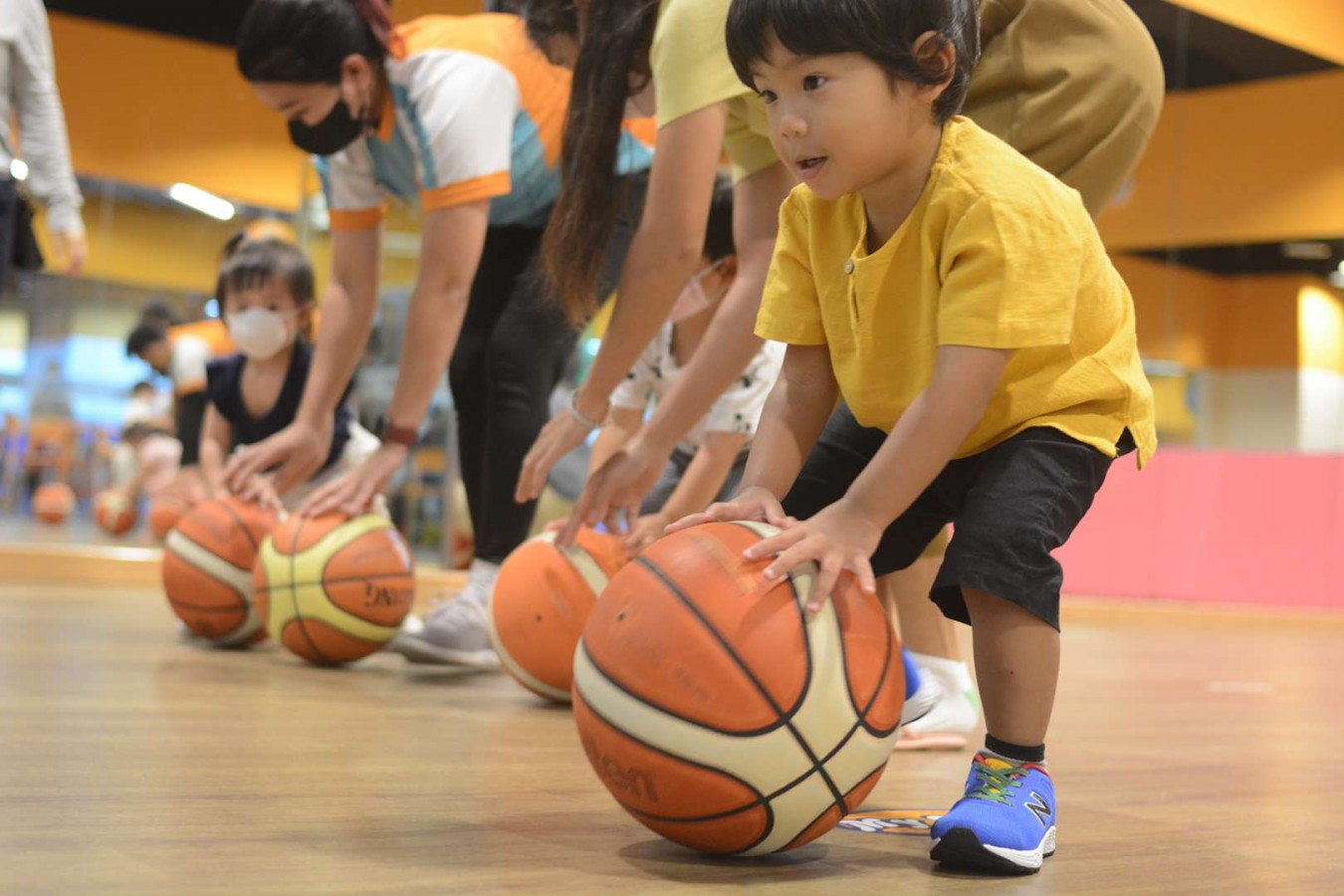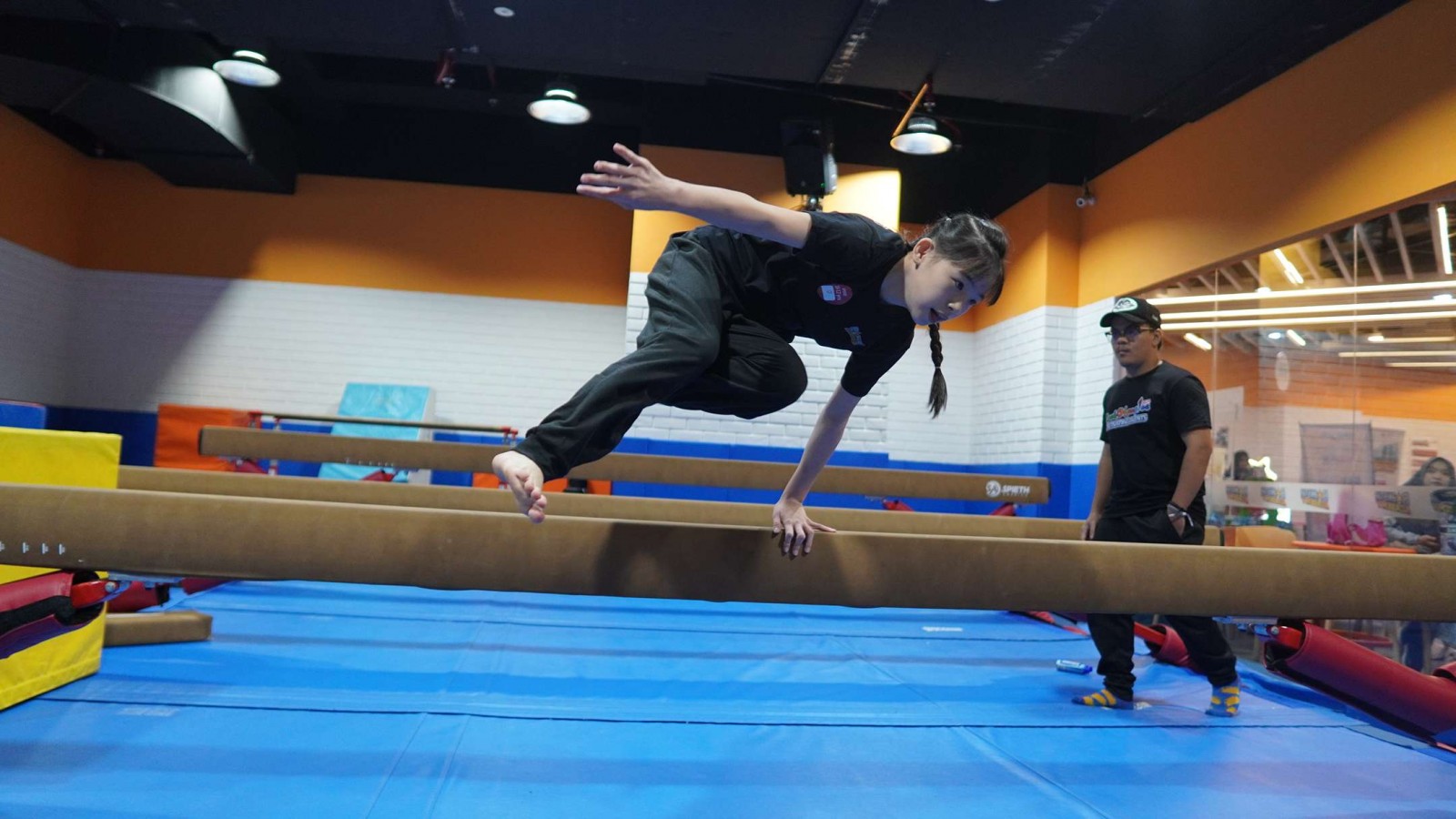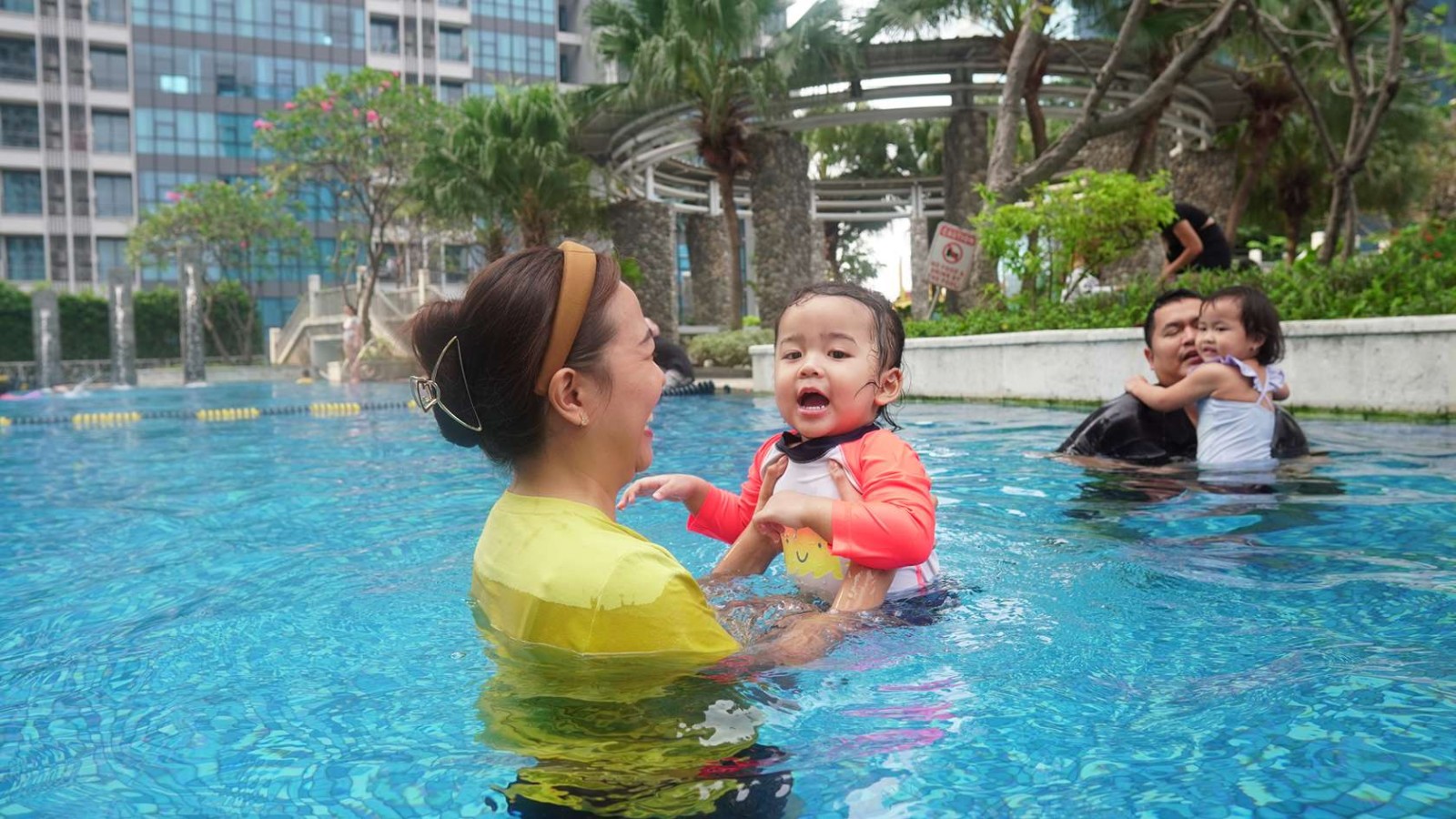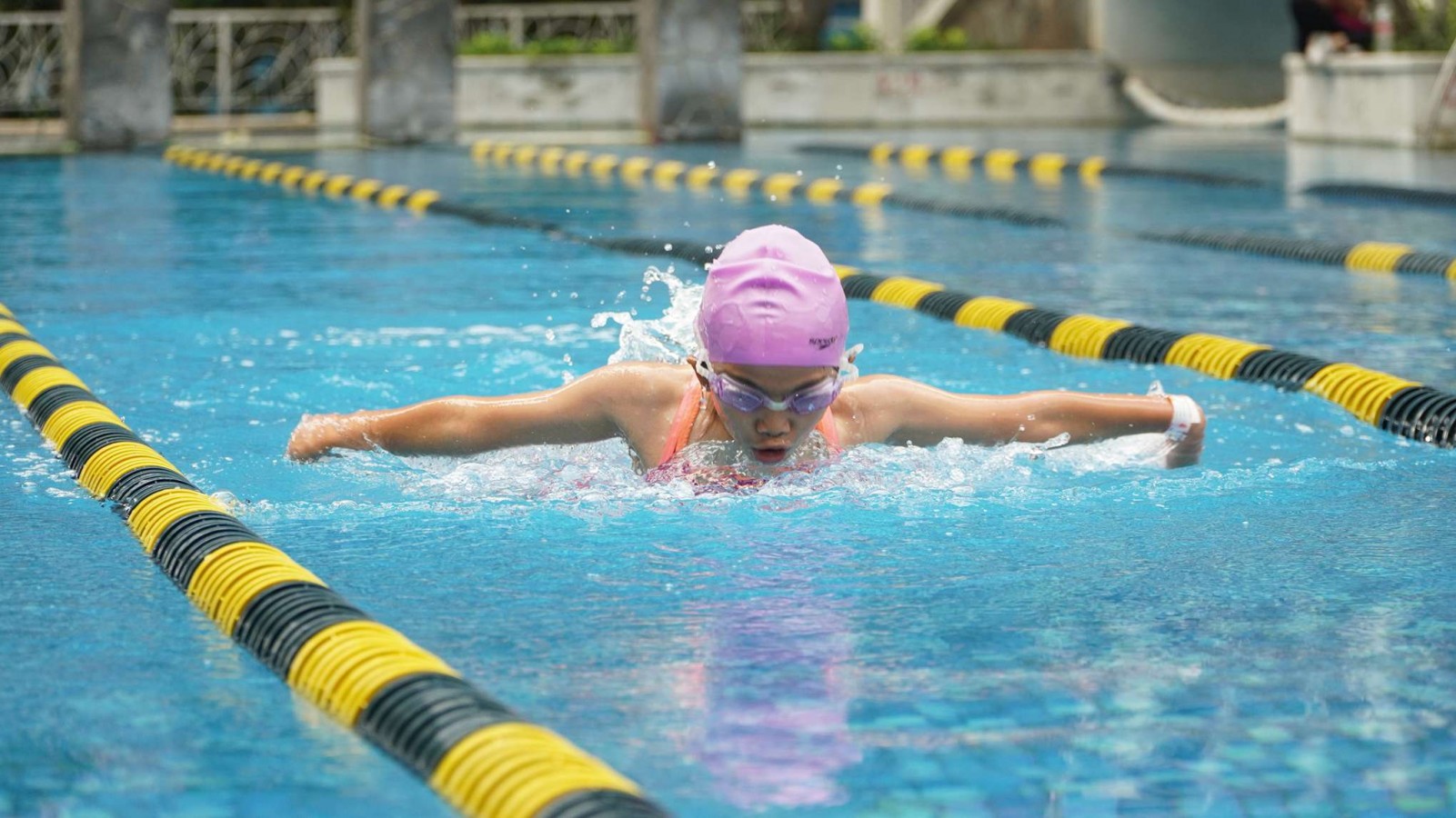The Importance of Locomotor Skills in Child Development

From the moment children begin to explore their surroundings, they rely on locomotor skills to move and navigate the world around them. Locomotor skills are fundamental movements that form the basis of physical activity and play a crucial role in child development.
This article will guide you because we'll explore the importance of locomotor skills, their benefits and examples.
What Are Locomotor Skills?
Locomotor skills are basic movements that involve traveling from one place to another, typically using the arms, legs, and whole body. These skills form the foundation for more complex movements and activities, such as running, jumping, hopping, skipping, galloping, and leaping. Mastering locomotor skills is essential for children to participate in sports, games, and physical activities, promoting overall physical development and well-being.
Locomotor skills are divided into two, namely gross motor skills and fine motor skills. These two have differences in their movements and desired goals. Gross motor skills lead to larger movements such as running, while fine motor skills lead to fine movements, such as focusing on fingers like cutting.
Why Locomotor Skills Are Important
Why is it important? In our lives, we will always move to other places. By improving this skill, children directly improve other important muscles. Here are several points why locomotor skills are important:
1. Physical Fitness
Locomotor skills help children develop strength, coordination, balance, and endurance, promoting overall physical fitness and health. Engaging in physical activity from a young age lays the groundwork for lifelong habits of exercise and healthy living.
2. Motor Development
Locomotor skills contribute to the development of gross motor skills, which are essential for performing everyday tasks and activities, such as walking, running, climbing, and playing sports. Mastering these skills enhances children's physical abilities and confidence in their movements.
3. Cognitive Development
Learning and mastering locomotor skills require cognitive processes such as planning, problem-solving, and spatial awareness. Engaging in physical activity stimulates brain development, improves cognitive function, and enhances learning and academic performance.
4. Social and Emotional Development
Participating in physical activities and sports also helps children develop social skills such as cooperation, communication, and teamwork. By interacting with peers and working towards common goals, children learn important values such as sportsmanship, resilience, and empathy.
Examples of Locomotor Skills
Locomotor skills are very easy to apply. Children can apply these at home, for a more fun experience you can apply them with friends. Here are some examples of locomotor skills :
- Running
Moving rapidly on foot, with a continuous series of steps.
- Jumping
Springing into the air from both feet and landing on both feet.
- Hopping
Propelling the body off one foot and landing on the same foot.
- Skipping
A series of steps in which one foot is lifted off the ground while the other foot pushes off.
- Galloping
A combination of walking and running, with one foot leading and the other following.
- Leaping
Jumping forward or sideways with one foot leading and the other following.
Benefits of Locomotor Skills
Locomotor skills provide many benefits, as humans we must always move from one place to another. In addition, there are other benefits of locomotor skills, including the following:
1. Enhanced Physical Fitness
Mastering locomotor skills improves strength, coordination, balance, and cardiovascular health, contributing to overall physical fitness and well-being.
2. Improved Motor Coordination
Locomotor skills require precise coordination of the arms, legs, and body, enhancing motor coordination and control.
3. Increased Confidence
Successfully performing locomotor skills boosts children's confidence in their physical abilities and encourages them to engage in new challenges and activities.
4. Better Academic Performance
Regular physical activity, including the development of locomotor skills, has been linked to improved cognitive function, attention, and academic performance in children.
5. Social and Emotional Development
Participating in physical activities and sports helps children develop social skills such as teamwork, communication, and sportsmanship, fostering positive relationships and emotional well-being.
Causes of Poor Gross Motor Skills
Poor gross motor skills in children can result from various factors, including:
- Insufficient opportunities for physical activity and play
- Sedentary lifestyles characterized by excessive screen time and limited movement
- Developmental delays or motor coordination disorders that affect the acquisition and mastery of motor skills
- Environmental factors such as limited access to safe and stimulating environments for active play and physical activity.
These factors can hinder the development of gross motor skills, leading to weak muscles, poor coordination, and reduced physical abilities in children. Addressing these factors through increased opportunities for physical activity, structured play, and supportive environments can help children develop and improve their gross motor skills over time.
Locomotor Skills are Very Important for Children!
Locomotor skills play a crucial role in child development, promoting physical fitness, motor coordination, cognitive function, and social-emotional well-being. By providing children with opportunities to engage in sports and physical activities, parents can support the development of locomotor skills and lay the foundation for a healthy and active lifestyle.
For maximum results, parents can consider enrolling their children in multi-sports classes in Sports & Performing Arts Academy like Rockstar Academy's. With Multi-sports class, children's Locomotor skills will be well honed.
The class includes activities involving body movement, body manipulation, and the use of equipment to engage children in various sports. It complements sports with other early childhood education classes such as dance, swimming, and gymnastics.
Rockstar Academy's multi-sport programs also offer the opportunity to participate in the RockOlympics. This unique event features both individual and team competitions, allowing students to showcase their skills and teamwork in a competitive yet supportive environment.
For parents, RockOlympics is a rewarding and satisfying moment where they can witness the progress and achievements of their beloved children. This event not only celebrates the hard work and dedication of the participants but also fosters a sense of pride and accomplishment among families and the community.
Additionally, you can also sign up for a free trial class so your children can experience the class firsthand before signing up!
FAQ
What age groups are Rockstar Academy's Multi-sports programs suitable for?
Rockstar Academy's Multi-sports programs are suitable for children of all ages, from toddlers and preschoolers to older children and teens. We offer age-appropriate activities and curriculum tailored to each developmental stage to ensure that all participants have a fun and rewarding experience.
How do I enroll my child in Rockstar Academy's Multi-sports programs?
To enroll your child in Rockstar Academy's Multi-sports programs, simply visit our website or contact our enrollment team for more information. We offer flexible scheduling options, convenient locations, and affordable pricing plans to accommodate busy families and provide access to high-quality sports programming for children of all backgrounds.



